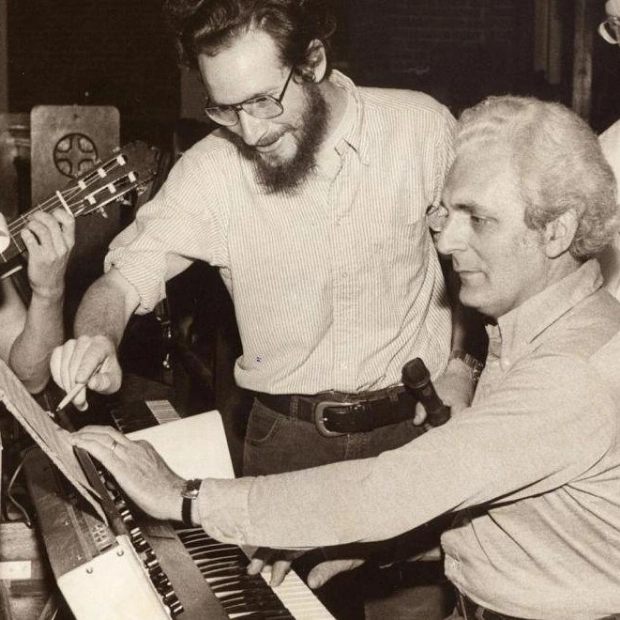At the Cop29 climate conference last month, Sofie Junge Pedersen and Katie Rood once again urged Fifa to terminate its sponsorship agreement with Saudi Arabian state oil giant Aramco. They were part of a group of over 130 female players who signed an open letter in October, characterizing the partnership as a 'middle finger to women’s football' that would inflict significant harm on both people and the planet. Following the publication of the letter, I voiced my support for their initiative, hoping that other male professional players would join me. The women received widespread praise for their stance, but their male counterparts have yet to follow suit. On Wednesday, Fifa is expected to confirm Saudi Arabia as the host of the 2034 men’s World Cup.
Men’s and women’s football operate in vastly different spheres. Women’s football has a legacy of players advocating for equality and inclusion, both within the sport and beyond. Their careers have often been marked by financial instability, underinvestment, and a necessity to focus on life outside of football. It was largely due to the players’ advocacy that women’s football has reached its current stature. The experience for male players of my generation is quite different. Generally, academy footballers are advised to steer clear of external distractions, and elite professionals who speak out or pursue interests beyond the pitch risk being labeled hypocrites or being told to 'focus on the football' when results start to falter. We are frequently treated as commodities, expected to play an increasing number of games and sold when the price is right.
However, we care deeply about what happens both on and off the pitch. This has led players to stand against racism, campaign for mental health, or privately donate significant portions of their wealth to charities. It has also led me to advocate for stronger climate action and against gambling sponsors in football. I perform better when I can freely pursue the causes I care about off the pitch. This is why I spoke out against the Fifa-Aramco deal, which includes tournaments such as the men’s World Cup in 2026 and the Women’s World Cup in 2027. Aramco is one of the most polluting companies in history and has yet to develop a plan to transition away from fossil fuels.
At climate conferences, Aramco employees have been part of the Saudi Arabian delegation, a country that systematically obstructs climate action and aims to keep poorer nations dependent on its fossil fuels. Promoting its brand at the World Cup sends a message to billions of fans that oil is acceptable and aids Saudi Arabia in extending the lifespan of fossil fuels as long as possible. Many players agree with me. They are beginning to worry about what the climate crisis means for the world they and future generations will inhabit, including a world where playing football may become challenging. They do not want to be complicit in promoting these polluters. Therefore, it is crucial to discuss what might be preventing them from speaking out.
Those who do speak out will be told by many, including loyal fans, prominent former players, and online trolls, to 'shut up and focus on football.' For black players, speaking out invites a torrent of racist abuse. We should take a cue from the female players, who spoke out collectively and found strength in numbers. There is a certain cynicism in men’s football that nothing ever changes, money rules, and everyone can be bought. We must move beyond this. Nothing changes without people pushing for it. If players, fans, coaches, club executives, and football associations unite, we possess immense power. There is no football without us. Let’s build the game we desire: one free from fossil fuel promotion and enjoyable for generations to come.
If you speak about one issue, you are often asked why you don’t speak out about another. Or you are told that because your country is not perfect, you have no right to comment on situations in other countries. I have frequently spoken out about issues in the UK; we have many, and it is crucial that we reflect on them. However, future generations, those currently suffering from the climate crisis, or any jailed Saudi human rights activist would not prefer us to remain silent simply because we or the countries we come from are not perfect. The climate crisis is a shared problem: although it affects some more than others, everyone will have to confront its consequences.
The letter from the female players was signed by players from 26 countries, and conversations were held with Saudi activists, climate experts, and others to inform the content and prepare the players for potential questions. If you are reading this as a player, know that we have many allies ready to join forces with us. Footballers often have relatively short careers and it is not in their interest to risk antagonizing their club leadership or limiting future opportunities. Here, it is beneficial to know that the global union, Fifpro, always defends the rights of players who speak out.
Players have confided in me that they believe in the cause but are hesitant to speak out because they do not want to jeopardize lucrative opportunities in Saudi Arabia. I understand the appeal of financially securing your family’s future, but while we never know what the future holds in terms of career opportunities, we do know that the climate crisis is extremely dangerous and our voices carry far. Will our grandchildren truly thank us for ensuring their financial security if it comes at the expense of our planet?
While I encourage male players to speak out, I must also emphasize that the responsibility lies with football leadership, who are selling our sport to repressive regimes and major polluters. Fifa, Uefa, and other football governing bodies must do more to ensure the game can thrive for generations to come. We can play a role in pushing them to achieve this. Female players have provided the blueprint – we just need to join them.
Source link: https://www.theguardian.com






